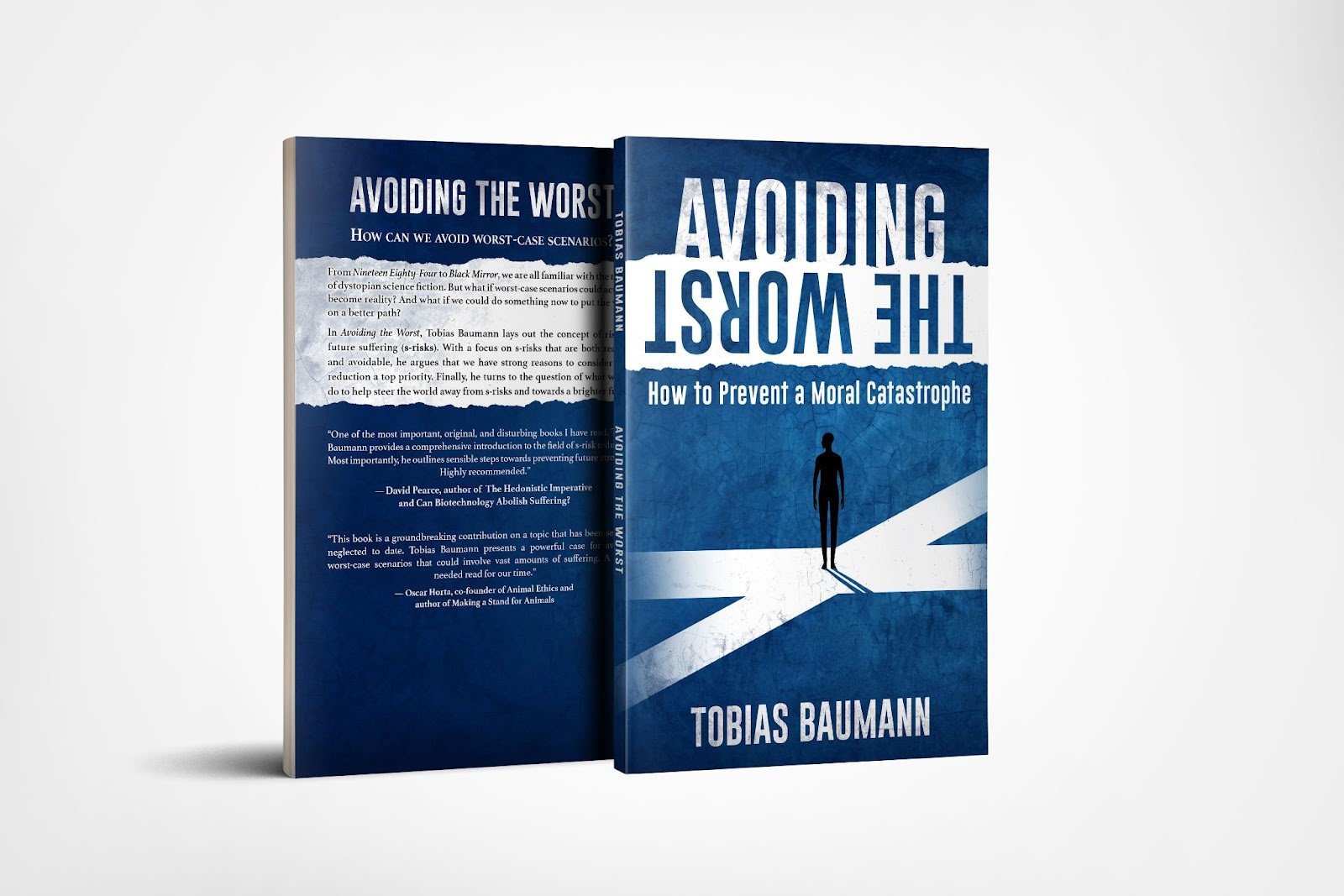I have just published my new book on s-risks, titled Avoiding the Worst: How to Prevent a Moral Catastrophe. You can find it on Amazon, read the PDF version, or listen to the audio version.
The book is primarily aimed at longtermist effective altruists. I wrote it because I feel that s-risk prevention is a somewhat neglected priority area in the community, and because a single, comprehensive introduction to s-risks did not yet exist. My hope is that a coherent introduction will help to strengthen interest in the topic and spark further work.
Here’s a short description of the book:
From Nineteen Eighty-Four to Black Mirror, we are all familiar with the tropes of dystopian science fiction. But what if worst-case scenarios could actually become reality? And what if we could do something now to put the world on a better path?
In Avoiding the Worst, Tobias Baumann lays out the concept of risks of future suffering (s-risks). With a focus on s-risks that are both realistic and avoidable, he argues that we have strong reasons to consider their reduction a top priority. Finally, he turns to the question of what we can do to help steer the world away from s-risks and towards a brighter future.
For a rough overview, here’s the book's table of contents:
Part I: What are s-risks?
Chapter 1: Technology and astronomical stakes
Chapter 2: Types of s-risks
Part II: Should we focus on s-risks?
Chapter 3: Should we focus on the long-term future?
Chapter 4: Should we focus on reducing suffering?
Chapter 5: Should we focus on worst-case outcomes?
Chapter 6: Cognitive biases
Part III: How can we best reduce s-risks?
Chapter 7: Risk factors for s-risks
Chapter 8: Moral advocacy
Chapter 9: Better Politics
Chapter 10: Emerging technologies
Chapter 11: Long-term impact
And finally, some blurbs for the book:
“One of the most important, original, and disturbing books I have read. Tobias Baumann provides a comprehensive introduction to the field of s-risk reduction. Most importantly, he outlines sensible steps towards preventing future atrocities. Highly recommended.”
— David Pearce, author of The Hedonistic Imperative and Can Biotechnology Abolish Suffering?
“This book is a groundbreaking contribution on a topic that has been severely neglected to date. Tobias Baumann presents a powerful case for averting worst-case scenarios that could involve vast amounts of suffering. A much needed read for our time.”
— Oscar Horta, co-founder of Animal Ethics and author of Making a Stand for Animals


Yeah, I agree it's not clear why they'd do it. I give the comic writer some slack though, since it's hard to fit that much into a comic.
Couple reasons that I can think of off the top of my head that that could happen:
Honestly though, I think the most probable s-risks are the incidental ones (covered in Tobias's book and also this blog post here). Basically, something where suffering is a side-product, like factory farming or slavery. I also put highest odds it would be for digital minds, since I think the future will be predominantly digital minds.
But it'd be very hard to make a comic about digital minds that would be emotionally compelling, which is why I like the comic (although "like" is a bit of a strong word. More, "found incredibly psychologically scarring but in a way that helps me remember what I'm fighting for")